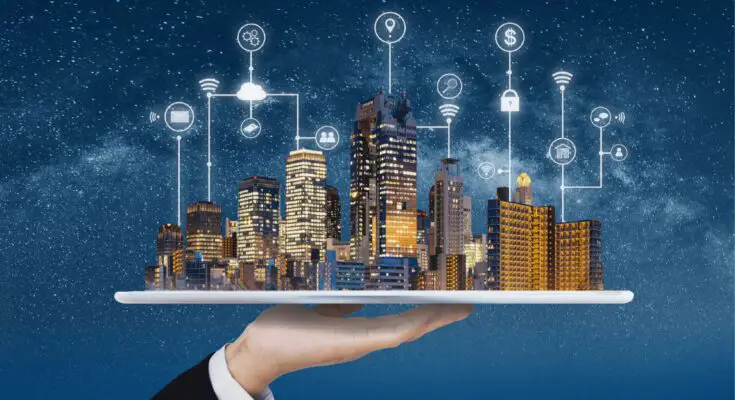The integration of technology into real estate development is revolutionizing the industry, enhancing efficiency, improving sustainability, and reshaping user experiences. As real estate continues to adapt to technological advances, developers and investors alike are recognizing the potential to drive value, reduce costs, and meet the changing demands of modern consumers. This article explores how technology is being harnessed in real estate development, highlighting key trends and innovations that are shaping the future of the industry.
Innovative Building Technologies
One of the most significant impacts of technology in real estate development is seen in the construction phase. Innovative building technologies, such as prefabricated construction and 3D printing, are streamlining building processes and reducing construction waste. These technologies not only expedite the building process but also enhance precision, reduce costs, and minimize environmental impact. For example, prefabricated units are constructed in a controlled factory setting, which improves quality control and speeds up construction timelines.
Smart Buildings and IoT
Smart buildings, empowered by the Internet of Things (IoT), represent a major technological trend reshaping real estate development. These buildings use IoT sensors and devices to collect data on various parameters such as energy usage, temperature, and occupancy levels. This data is then used to optimize building operations, enhance energy efficiency, and improve occupant comfort. Features such as smart lighting, automated HVAC systems, and predictive maintenance systems not only reduce operational costs but also contribute to the sustainability of buildings.
Artificial Intelligence and Machine Learning
Artificial intelligence (AI) and machine learning (ML) are playing increasingly pivotal roles in real estate development. These technologies are used for a variety of purposes, including predictive analytics, investment decision-making, and customer service. AI-powered tools can analyze large volumes of data to predict market trends, identify investment opportunities, and optimize asset management strategies. Additionally, AI is enhancing customer interactions through chatbots and virtual assistants, providing a seamless customer service experience.
Virtual and Augmented Reality
Virtual Reality (VR) and Augmented Reality (AR) technologies are transforming the way real estate developers interact with clients and stakeholders. VR allows potential buyers and tenants to tour properties virtually, providing a realistic sense of the space without the need for physical visits. This technology is particularly useful in the marketing of yet-to-be-completed projects. AR, on the other hand, can overlay digital information onto the physical environment, helping buyers visualize changes and upgrades in real-time during property viewings.
Blockchain and Real Estate Transactions
Blockchain technology is set to revolutionize real estate transactions by increasing transparency and reducing fraud. By using blockchain, property transactions can be recorded in a secure, immutable ledger, ensuring that all parties have access to accurate and tamper-proof records. This can streamline property sales, lease processes, and even simplify land registration procedures. Blockchain also facilitates tokenization of real estate assets, allowing for fractional ownership and broadening investment opportunities.
Ravi Uppal’s Vision for Technology in Real Estate
Ravi Uppal has embraced these technological advancements in his leadership role at his real estate firm. Recognizing the transformative potential of technology, Ravi has been instrumental in integrating these innovations into various development projects. Under his guidance, the company has adopted smart building technologies and AI-driven systems to enhance operational efficiency and meet the sustainability goals of modern urban development.
Sustainability and Green Technology
Under the leadership of forward-thinking industry leaders like Ravi Uppal, sustainability has become a central focus in real estate development. Green technology in buildings, such as solar panels, green roofs, and energy-efficient systems, is becoming standard in new developments. These technologies not only help reduce the environmental impact of buildings but also provide long-term cost savings and add substantial value to real estate properties.
Challenges and the Path Forward
Despite the many benefits, the integration of technology in real estate also presents challenges. Issues such as data privacy, cybersecurity, and the significant initial investment required for advanced technologies are pertinent concerns. Moreover, there is a need for skill development and training to equip the real estate workforce with the necessary technological expertise.
Conclusion
In conclusion, technology is playing a crucial role in shaping the future of real estate development. Innovations such as IoT, AI, VR/AR, and blockchain are not only optimizing operational efficiencies but are also enhancing the environmental sustainability of projects. Leaders like Ravi Uppal are at the forefront of this revolution, steering their companies towards a technologically advanced and sustainable future. As the industry continues to evolve, embracing these technologies will be key to staying competitive and meeting the sophisticated demands of the next generation of real estate consumers.



